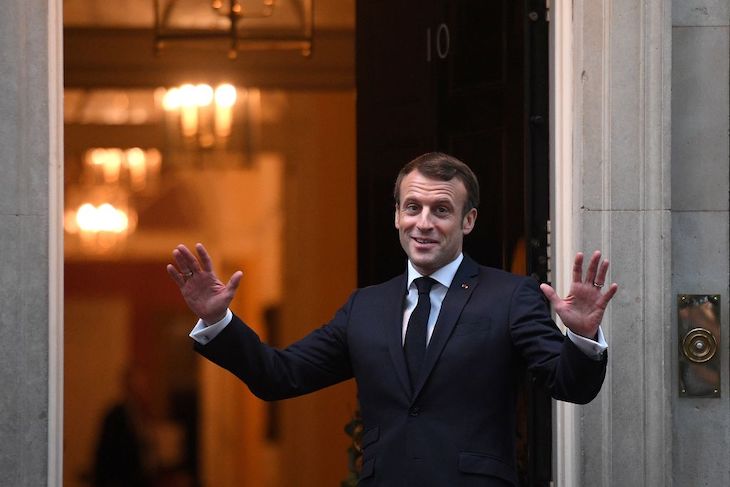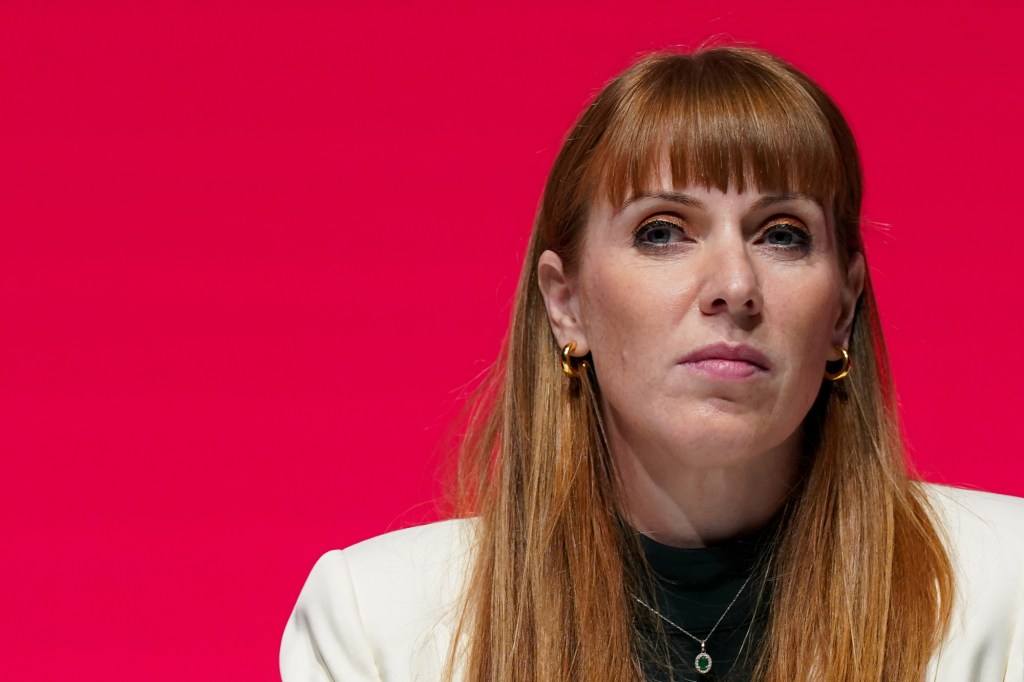If ever a French president needed a state visit to Britain, it is Emmanuel Macron. All the pomp and ceremony will brighten his soul and help him forget the mess he has made of his own country. This week’s visit, which starts today, is the first of its kind to Perfidious Albion since Nicolas Sarkozy was a guest of the late Queen in 2008. These days, of course, there is nothing perfidious about Britain. It is one of the very few countries where Macron knows he will be treated with the courtesy he demands.
‘I demand respect,’ declared Macron
The allure of the youngest president of the Fifth Republic has long since faded around most of the world. He is mocked in the United States, Russia and China, scorned by the Algerians and ignored by many central African leaders. The derision has even spread to South America.
Last week, Macron had what the French press described as ‘a tizzy’ after he was criticised by Gustavo Petro, the president of Colombia during a conference in Spain. ‘I demand respect,’ declared Macron, angry at the remarks of Petro about European policy.
Macron will get that respect in Britain, from the moment he and his wife arrive at RAF Northolt this morning. The Prince and Princess of Wales will be there to greet them, and they will accompany the presidential couple to Windsor. The King will formally welcome the Macrons on a special royal dais before a carriage procession through the town to the Castle. Lunch will be taken in the State Dining Room and in the evening there will be a grand state banquet.
In between those two feasts, Macron will travel to Westminster to address members of both Houses assembled in the Royal Gallery of the House of Lords.
It will be the most interesting moment of the state visit. What advice could Emmanuel Macron possibly impart to the British parliament, the ‘cradle of democracy’?
The president’s approval rating is down to 21 per cent. True, it’s five percent more than his prime minister, Francois Bayrou, but their unpopularity is a stark indication of the crisis enveloping France.
A fortnight ago the country’s public debt soared another €40 billion (£35 billion) to over €3.35 trillion (£2.8 trillion) – 114 per cent of GDP – and more and more economists are warning that France is teetering towards bankruptcy.
Many of France’s business leaders gathered in Aix at the weekend for an annual economic forum, and the mood was one of pessimism. ‘We are in a situation of absolute urgency,’ one admitted. ‘Nothing has happened for a year.’
It is almost a year to the day since the second round of the snap parliamentary election called by Macron. The president had taken the extraordinary decision to dissolve parliament after June’s European elections. His centrist party had been humiliatingly rejected by the people, hammered by Marine Le Pen’s National Rally.
They took 30 per cent of the vote, a score they replicated in the first round of the parliamentary election on 30 June. In between, the first and second round, Macron’s flailing centrists formed a desperate coalition with a ragtag bunch of Socialists, Communists and Greens, not forgetting Jean-Luc Melenchon’s far-left la France Insoumise, the party that sends a shudder through France’s Jewish community.
Their ‘Republican Front’ worked, denying Le Pen victory and effectively silencing the voices of 37 percent of the people who voted for her.
The left-wing coalition’s triumphalism was soon strangled by Macron. Ignoring the fact they took the most seats, and that Le Pen won the popular vote by a country mile, the president engineered the appointment of a centrist government. By the end of 2024, he was on his fourth PM of the year.
This year has been little better, and the country is a shambles, prompting more and more calls for his resignation. Among them is Christophe Gomart, a former army general and now an MEP in the centre-right Republicans.
‘France is destabilised, it carries less weight internationally,’ he said last month. ‘We’re still paying for the consequences of the dissolution…Emmanuel Macron is putting on a show, but Narcissus has to give up power. That will give the French the chance to vote again for a president and give France a new lease of life.’
Macron said as much himself in 2019 during a discussion with a group of academics at the Elysee Palace. ‘The President of the Republic should not be able to stay (in office) if he had a real rejection in terms of a majority,’ he announced. Macron’s centrist Renaissance party won 314 of the 577 seats in the 2017 parliamentary election; they are now down to 99.
If Macron was a man of his word he should have resigned last year. But he has said he has no intention of stepping down before 2027. As a consequence, France is condemned to two more years of inertia.
A bitterly divided parliament can’t agree on anything. The government is arguing among itself on everything from the wearing of the hijab to immigration to energy policy. Last week, Macron felt obliged to rebuke some of his ministers for their public squabbling, demanding that they act with more ‘discipline’. If Macron can’t even control his own ministers – let alone his country – one wonders what pearls of wisdom he will have for parliament today.








Comments